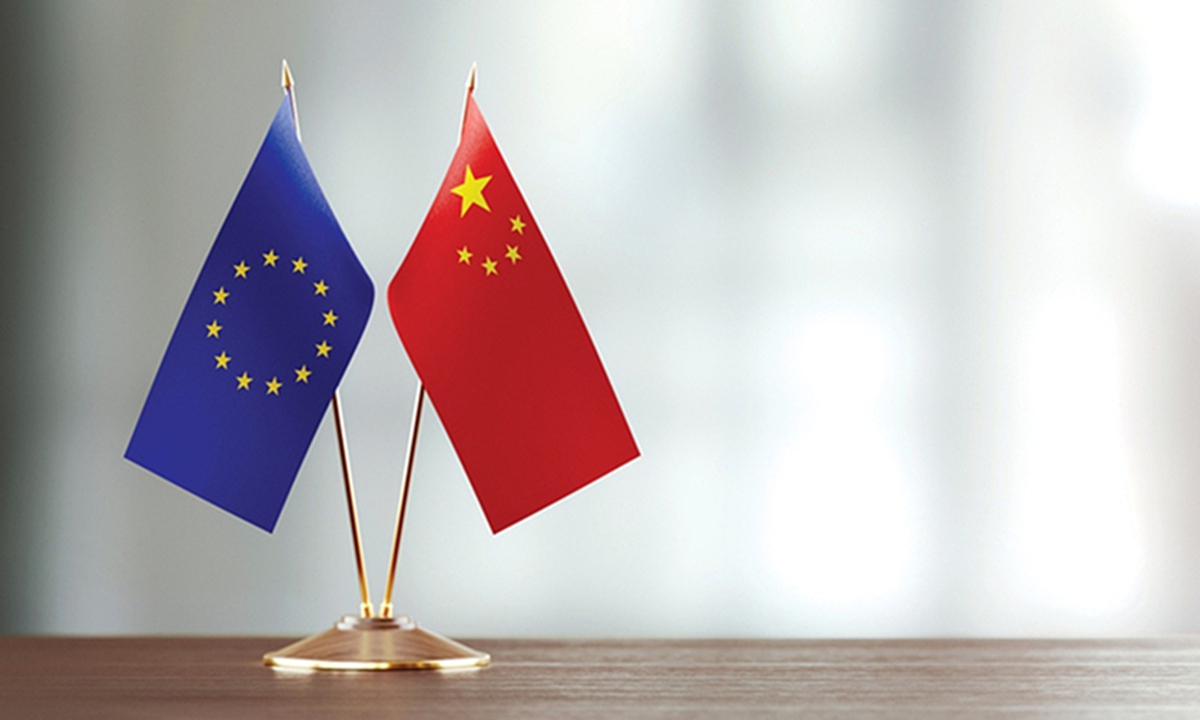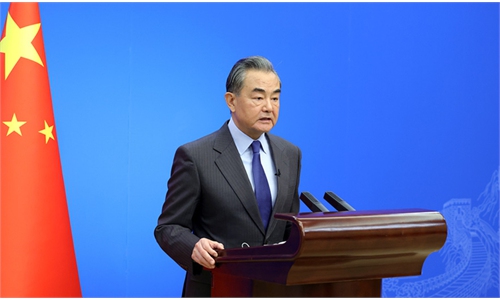
China-EU Photo: VCG
Wang Yi, a member of the Political Bureau of the CPC Central Committee and director of the Office of the Central Commission for Foreign Affairs, is currently on a visit in Europe. He has met with French President Emmanuel Macron, French Foreign Minister Catherine Colonna, Italian Deputy Prime Minister and Minister of Foreign Affairs and International Cooperation Antonio Tajani, Italian President Sergio Mattarella, and other European leaders. Next, he will also visit Hungary and Russia and attend the 59th Munich Security Conference in Germany. Wang's visit gives a positive signal of a "reboot" and has received positive responses. Macron said that the time for reconnection with China has come, while Colonna said that it is necessary to make up for the time lost due to the pandemic.
Due to the impact of the COVID-19 pandemic, China and Europe have lost many opportunities for direct communication and exchange over the past three years. During that period, the international situation has undergone significant changes, most notably, the outbreak of the Russia-Ukraine conflict. Regrettably, the lack of communication has led to misunderstandings and even misjudgments of China by some Europeans, which has to some extent impeded China-Europe cooperation. However, there are no fundamental contradictions between China and Europe, and apart from their respective core interests, nothing cannot be discussed. On various issues such as global governance, the two sides should bring the power of China-Europe cooperation into full play and make the world a better place.
The fact proves that there is broad consensus, common interests and a common stance between China and Europe. Macron has reiterated his commitment to upholding multilateralism, opposing bloc confrontation and avoiding division in the world. This strategic position is representative in Europe and highly accords with China's position.
The wish to strengthen cooperation with China, communicate and engage with China is still the mainstream attitude in Europe. We can see this from the warm welcome that Wang received during his visit to Europe.
It should be emphasized that the relationship between China and Europe has never been dependent on the China-US relationship, although Washington has always been working in that direction. In the 1960s, when General Charles de Gaulle sent a personal letter to China expressing his hope to establish diplomatic relations, the US was still busy besieging China. Now, the spillover effects of the tense relations between China and the US are inevitably interfering with the relationship between China and Europe, but at the same time, it highlights the importance of the independent development of the China-Europe relationship. As two global powers, the China-Europe relationship has inherent development patterns and dynamics. China has always viewed and handled the China-Europe relationship from a strategic perspective, hoping Europe could meet China halfway.
Chinese people understand the difficulties Europe currently faces. The green digital transformation and the Russia-Ukraine conflict are the two major issues troubling the continent. On these two issues, Europe clearly sees that Washington is not helping, but rather sabotaging and sacrificing Europe's security and interests for its own gain.
Just before the Chinese delegation's visit, some voices in the US claimed that this visit "will not be a reconciliation," as "Europe is not in the mood for love."
This statement is less a judgment from the US media than a reflection of their narrow-minded wishes: what they would like to see the most is China-Europe relations deteriorating, and they are least willing to see China and Europe come closer. As a result, it will be difficult for them to understand and grasp the mainstream of China-Europe relations.
Rebooting and strengthening communication and dialogue often signify a good start, as demonstrated by past history. During Wang's visit to Europe, France announced the lifting of entry restrictions for Chinese travelers, and the EU will also end the requirement for negative pre-departure COVID tests this month, which is seen by many as a positive signal. In addition, the ice on the frozen China-EU Comprehensive Agreement on Investment also needs to be broken, as the mutually beneficial agreement, which came about through seven years of difficult negotiations, should not be easily shelved. Regarding the Russia-Ukraine conflict, which is of great concern in Europe, China and Europe share the common goal of a ceasefire and peace talks. Both sides are also willing to make political and diplomatic efforts to explore a political solution that truly benefits all parties.
China and Europe need to restart cooperation while moving forward. As Wang said, China and Europe need to make moves as soon as possible. This comes from a sense of urgency and responsibility. China and Europe have been interacting with each other for a long time. We believe that in the great changes unseen in a century, Europe will not make strategic mistakes and push China, which is supposed to be a strategic partner, into becoming its rival. Future China-Europe relations are bound to experience turbulence and uncertainties, but they should steer toward a better future. This is the aspiration and pursuit that China and Europe, as the world's two major powers, major markets, and major civilizations, are supposed to have.

